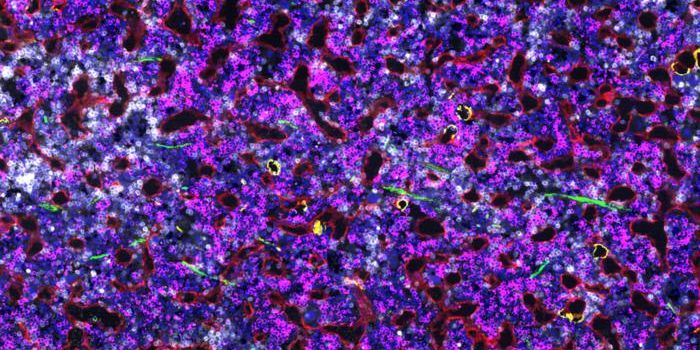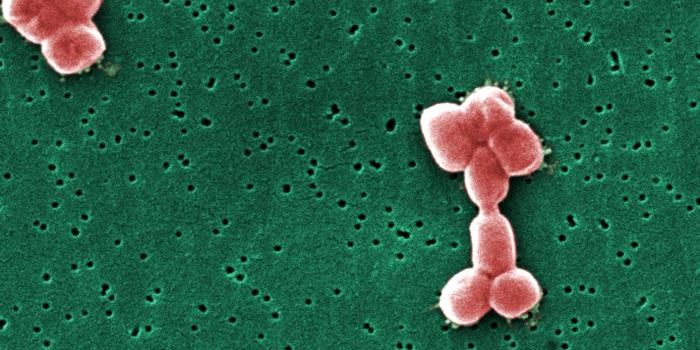Chemistry & Physics
Smoother Flow Via Superhydrophobic Rough Surfaces
JAN 22, 2014 12:00 AM PST
Share
Positive Results through a Positive Message
The placebo effect, where people receive dummy medications but report improvement in their condition anyway, has long been established-but does it matter how the medications are presented? A new study with migraine patients suggests that positive messaging is so powerful that it can increase the effectiveness of treatments, and that physicians must take care in how medications in trial stages are presented to patients. The study was published recently in Science Translational Medicine.
The study, combining efforts from Harvard University and the nearby Beth Israel Deaconess Hospital, involved 66 people who suffered from migraine headaches. Most studies try to determine the effectiveness of a medication and minimize the potential placebo effect. In this case, the intent was to use a medication already known to be effective, then quantify and contrast the amounts of relief that came strictly from the medication and alternately from the placebo effect.
To record a baseline pain level, the patients all agreed to delay taking any pain relief for a few hours during a migraine attack. For six subsequent migraine headaches, the subjects were given an envelope containing their medication, along with a message. The message fell in one of three categories: positive -the medication they received was rizatriptan (trade name Maxalt), which is known to be useful in migraine relief; negative-the medication is a placebo with no expectation of effect on migraine symptoms; or neutral-the medication could be either one.
However, the medications were switched in some cases so the medication did not match up with the message that the patients received. In doing so, the researchers were able to form sizable populations that were given expectations that did not meet the presumed effect of their medication.
To nobody's surprise, Maxalt was more effective than the placebo in head-to-head comparison. But the researchers were surprised to find that under all three potential messages, at least half of the total relief from pain could be attributed to the placebo effect. When subjects received correctly labeled Maxalt, their assessment of pain relief was over twice as much as the group that received Maxalt labeled incorrectly as a placebo. Also, the positive message showed improved results in pain relief in both cases, whether patients received Maxalt or a placebo.
Even in the cases where patients were given placebos that were explicitly labeled, pain relief was reported. This challenges the standard belief that placebos are effective because patients think that they are receiving an effective drug, but it's not obvious what theory should replace that belief.
By isolating the placebo effect, the study shows that a positive message and expectation of relief may improve the effectiveness of treatments (and conversely, that a poor message may hamper the effectiveness). It also calls into question theories as to how placebos actually work.
Does this study imply that all medications should be labeled "Quadruple-strength, super-effective wonder drug?" No-although it would be interesting to study the effect of inflated claims. It does, however, provide significant evidence that a positive message and high expectations are important in treatment, and that researchers must be careful to not skew studies of unknown drugs by not giving consistent messages.
The study, combining efforts from Harvard University and the nearby Beth Israel Deaconess Hospital, involved 66 people who suffered from migraine headaches. Most studies try to determine the effectiveness of a medication and minimize the potential placebo effect. In this case, the intent was to use a medication already known to be effective, then quantify and contrast the amounts of relief that came strictly from the medication and alternately from the placebo effect.
To record a baseline pain level, the patients all agreed to delay taking any pain relief for a few hours during a migraine attack. For six subsequent migraine headaches, the subjects were given an envelope containing their medication, along with a message. The message fell in one of three categories: positive -the medication they received was rizatriptan (trade name Maxalt), which is known to be useful in migraine relief; negative-the medication is a placebo with no expectation of effect on migraine symptoms; or neutral-the medication could be either one.
However, the medications were switched in some cases so the medication did not match up with the message that the patients received. In doing so, the researchers were able to form sizable populations that were given expectations that did not meet the presumed effect of their medication.
To nobody's surprise, Maxalt was more effective than the placebo in head-to-head comparison. But the researchers were surprised to find that under all three potential messages, at least half of the total relief from pain could be attributed to the placebo effect. When subjects received correctly labeled Maxalt, their assessment of pain relief was over twice as much as the group that received Maxalt labeled incorrectly as a placebo. Also, the positive message showed improved results in pain relief in both cases, whether patients received Maxalt or a placebo.
Even in the cases where patients were given placebos that were explicitly labeled, pain relief was reported. This challenges the standard belief that placebos are effective because patients think that they are receiving an effective drug, but it's not obvious what theory should replace that belief.
By isolating the placebo effect, the study shows that a positive message and expectation of relief may improve the effectiveness of treatments (and conversely, that a poor message may hamper the effectiveness). It also calls into question theories as to how placebos actually work.
Does this study imply that all medications should be labeled "Quadruple-strength, super-effective wonder drug?" No-although it would be interesting to study the effect of inflated claims. It does, however, provide significant evidence that a positive message and high expectations are important in treatment, and that researchers must be careful to not skew studies of unknown drugs by not giving consistent messages.
You May Also Like
Loading Comments...









